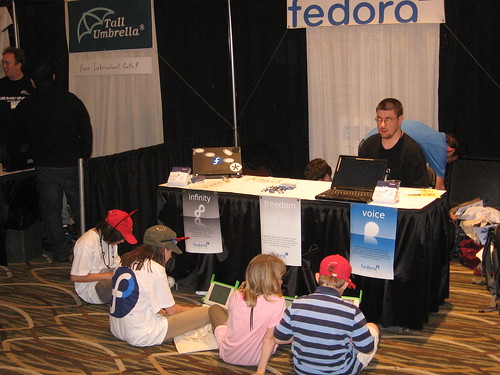As of this week’s plan, Richard Fontana and I are going to be at the Red Hat booth from 2 to 4 pm on Saturday 20 February at the Southern California Linux Expo (SCALE) 8x.
Being careful not to give legal advice, I think we’ll be there to have freeform discussions around:
- How and why we do licensing in the Fedora Project;
- The relationship between free and open source software;
- General landscape around intellectual property (IP) rights and content;
- The culture and methods of free culture/content;
- Where to find more of this discussion at opensource.com/law;
- … and so forth.
You know Richard originally from his work as a co-author of the GNU GPL, version 3, while at the Software Freedom Law Center. Today, Richard is Red Hat’s open source licensing counsel, and people like me interact with him on a range of topics from licensing around content and code to education about free/open source software legal culture. In addition, Richard works on promoting open standards and intellectual property law reform. He is a writer for the new law channel at opensource.com.
Richard Fontana will be talking about Improving the Open Source Legal System at SCALE on Sunday.
